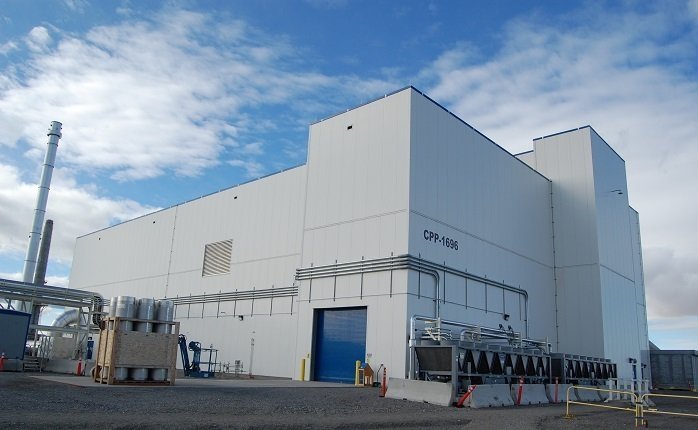
To date, IWTU has converted more than 14,700 gallons of tank waste to a more stable, granular solid, EM said. Crews have filled 47 stainless-steel canisters with waste and safely stored them in the IWTU’s concrete storage vaults. When IWTU began radiological operations last month, the facility began by treating a blend that was 10% sodium-bearing waste and 90% non-radioactive simulated waste, or simulant. EM then increased the treatment blend to 50% waste and 50% simulant before progressing to 100% sodium-bearing waste based on the plant’s operating conditions.
In June, IWTU crews will initiate a system performance test to demonstrate compliance with established performance standards and determine adequate operating conditions under the facility’s permit. The INL Site continues to work closely with the Idaho Department of Environmental Quality (IDEQ) to ensure compliance during the initial stages of radiological operations, including IDEQ onsite presence during the performance of the upcoming test.
About 900,000 gallons of liquid waste was generated during decontamination activities following legacy used nuclear fuel reprocessing runs at the Idaho Nuclear Technology and Engineering Centre, an activity that ended at the INL Site in 1992.
The IWTU is a first-of-a-kind, 53,000-square-foot facility. It will waste generated from operations at Idaho Nuclear Technology and Engineering Cenre (INTEC). The liquid is stored in three stainless steel 300,000 gallon storage tanks that are part of a tank farm of 15 tanks. IWTU uses a steam reforming technology to convert the liquid to a solid, granular material. This is packaged in stainless steel canisters and stored in concrete vaults at the site. The treated waste will remain on site until a permanent disposal site becomes available.
Any emissions generated during the treatment campaign will be filtered through high-efficiency particulate air (HEPA) and Granulated Activated Charcoal filters and sampled to ensure regulatory requirements are met. To date, according to DOE, the facility has converted more than 8,550 gallons of liquid tank waste to a more stable, granular solid. IWTU was constructed from 2007 to 2011 and from 2012 to 2023 it underwent testing with nonradioactive simulant.